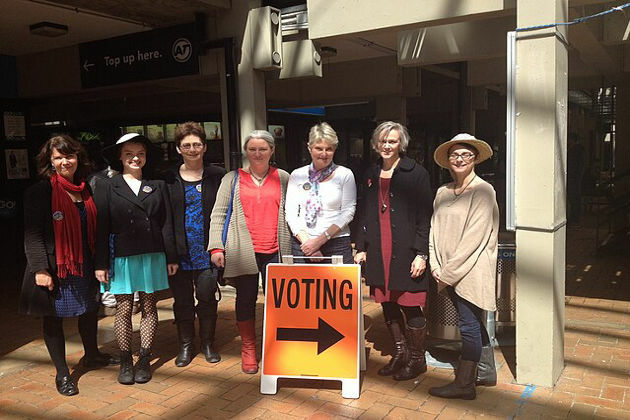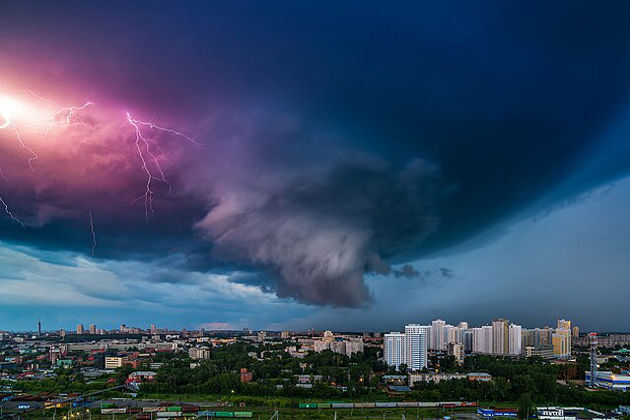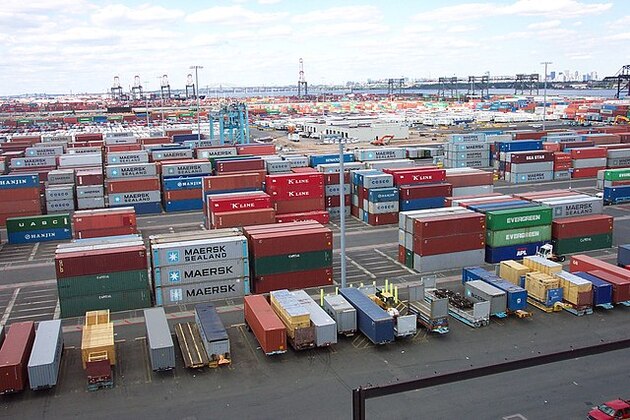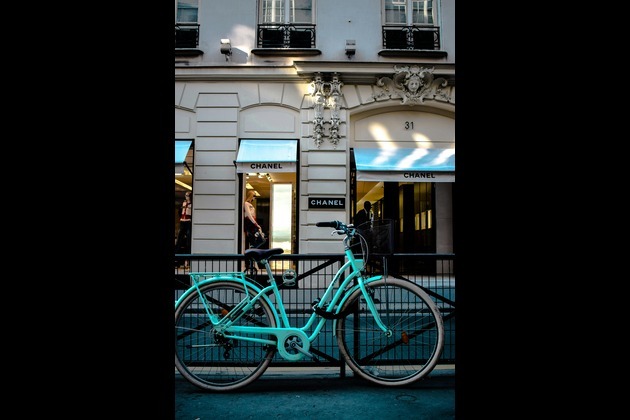New Zealand introduces bill to ban prisoners from voting
Mohan Sinha
31 Jul 2025, 11:06 GMT+10

- On July 29, the New Zealand government introduced a controversial bill that would restrict voting access by ending same-day voter registration and revoking voting rights for all prisoners — changes that critics warn could suppress democratic participation
- The bill, which passed its first of three readings in Parliament, proposes several amendments to the country’s electoral laws
- Under the new rules, citizens would be required to enroll to vote at least 13 days before an election, ending the current practice that allows enrollment up to and on election day
WELLINGTON, New Zealand: On July 29, the New Zealand government introduced a controversial bill that would restrict voting access by ending same-day voter registration and revoking voting rights for all prisoners — changes that critics warn could suppress democratic participation.
The bill, which passed its first of three readings in Parliament, proposes several amendments to the country's electoral laws. Under the new rules, citizens would be required to enroll to vote at least 13 days before an election, ending the current practice that allows enrollment up to and on election day.
In addition, the bill would reinstate a blanket ban on voting for all incarcerated individuals and require polling to begin 12 days before the official election day — a move the government says will streamline logistics and election result timelines.
Justice Minister Paul Goldsmith, who introduced the legislation, described the reforms as a necessary update to what he called "outdated and unsustainable" electoral processes. He argued that the changes would improve efficiency, reduce costs, and speed up vote counting.
"This bill overhauls a number of outdated and unsustainable electoral laws," Goldsmith said. "The amendments will strengthen the system, helping to deliver timely election results, manage the costs, clarify rules, and provide more efficient services to voters."
However, the bill has drawn significant criticism, including from Attorney General Judith Collins, a member of the ruling National Party. In a report released last week, Collins warned that parts of the legislation may violate the New Zealand Bill of Rights Act, specifically the rights to freedom of expression and the right to vote.
"The bill appears to be inconsistent with the rights affirmed in the Bill of Rights," Collins noted in her report. She also highlighted that during the 2023 general election, over 97,000 people registered to vote during the voting period, many for the first time. Another 134,000 changed electoral districts while voting was underway.
"These figures give a sense of the number of citizens who may be disenfranchised by the proposed cut-off," she said.
The government says the legislation is in part a response to delays following the 2023 general election. The final result took nearly three weeks to certify due to the large number of "special votes." These include ballots cast by citizens overseas, those voting outside their registered district, or first-time voters who enrolled during the election period.
Officials argue that by limiting eligibility and ending voter registration earlier, the process will become more manageable and faster.
Members of the opposition Labour Party condemned the bill as regressive. Duncan Webb, a Labour MP, criticized the move as antidemocratic and exclusionary.
"This is a dark day for democracy," Webb said during the debate. "Politicians should be making it easier for people to vote, not harder. That's how we make sure everybody's voice is heard."
If passed, the bill would significantly reshape how New Zealanders vote, mainly affecting marginalized groups such as prisoners and last-minute registrants, raising fundamental questions about access and equity in one of the world's most established democracies.
 Share
Share
 Tweet
Tweet
 Share
Share
 Flip
Flip
 Email
Email
Watch latest videos
Subscribe and Follow
Get a daily dose of Africa Leader news through our daily email, its complimentary and keeps you fully up to date with world and business news as well.
News RELEASES
Publish news of your business, community or sports group, personnel appointments, major event and more by submitting a news release to Africa Leader.
More InformationInternational
SectionAmid global outcry over Gaza, U.S. targets Palestinian officials
The Trump administration moved Thursday to deny visas to Palestinian officials, accusing them of sabotaging peace efforts, a stark...
Powerful quake jolts Far East Russia, but no damage reported
MOSCOW, Russia: One of the most powerful earthquakes ever recorded — measuring 8.8 in magnitude — struck off the remote coast of Russia's...
Vinay Prasad exits FDA after Elevidys drug controversy
WASHINGTON, D.C.: Vinay Prasad, the chief medical and science officer at the U.S. Food and Drug Administration (FDA), has left the...
New rule redirects security aid to US immigration enforcement
WASHINGTON, D.C.: The Federal Emergency Management Agency (FEMA) has introduced a new rule requiring states to dedicate a portion of...
Seoul scrambles to strike U.S. trade deal before August 1 deadline
SEOUL, South Korea: With just a day left before a critical August 1 deadline, South Korea is pulling out all the stops to strike a...
New Zealand introduces bill to ban prisoners from voting
WELLINGTON, New Zealand: On July 29, the New Zealand government introduced a controversial bill that would restrict voting access by...
Business
SectionUS tariffs push luxury labels to rethink pricing power, strategy
PARIS/NEW YORK: Luxury brands are walking a tightrope in the U.S. after fresh tariffs threatened to squeeze profits at a time when...
Nvidia restarts H20 chip orders for China amid export license wait
BEIJING/SHANGHAI/NEW YORK: Nvidia has placed an order for 300,000 more H20 chips with contract manufacturer TSMC, two sources told...
Wall Street joins global decline, greenback jumps
NEW YORK, New York - U.S. and global stocks weakened on Thursday, led by declines in the tech sector. These market reactions—despite...
AI center in Cheyenne to use record power, may expand fivefold
CHEYENNE, Wyoming: A new AI data center planned near Cheyenne, Wyoming, is set to consume more electricity than all the state's homes...
Controversial dating app Tea suffers major data breach
NEW YORK CITY, New York: Tea, a controversial dating app that allows women to anonymously review and comment on their experiences with...
Hutchison may add COSCO to ease China's concerns on ports sale
HONG KONG: CK Hutchison is exploring the inclusion of a major Chinese investor in the proposed US$22.8 billion sale of its global ports...












